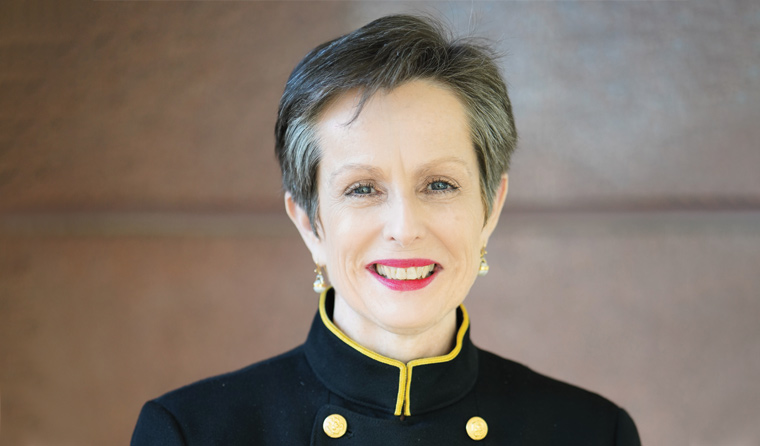News
Is it time for a lung cancer screening program in Australia?
Cancer Australia is seeking answers about the possibility of implementing screening for the nation’s deadliest cancer.
 Australia does not already a screening program for lung cancer because there has not yet been enough evidence to support the efficacy of such a program.
Australia does not already a screening program for lung cancer because there has not yet been enough evidence to support the efficacy of such a program.
Although national screening programs for breast, bowel and cervical cancer may keep those diseases more front-of-mind, lung cancer remains a very serious problem in Australia.
‘It’s the fifth most common cancer, but it’s the top cancer killer,’ Professor Dorothy Keefe, Chief Executive of Cancer Australia, told newsGP. ‘About 13,000 people are expected to be diagnosed a year, with about 9000 deaths.
‘So it’s a big deal.’
These deadly statistics prompted Federal Health Minister Greg Hunt to announce, on World Lung Cancer Day earlier this year, that he would ask Cancer Australia to conduct the first inquiry into the possibility of a national lung cancer screening program.
Cancer Australia has now launched its Consultation Hub, through which organisations and individuals can make submissions about the proposal.
‘I’m hoping to hear from individuals who have experienced lung cancer and the health system around that,’ Professor Keefe said. ‘I’m hoping to hear from researchers, I’m hoping to hear from colleges, from all interested groups.
‘And I don’t only want to hear from the people who are positive. I want to hear what the negatives might be, and the considerations we should take.’
Some may wonder why, given such deadly statistics in Australia, there is not already a screening program for lung cancer.
According to Professor Keefe, this is because there has not yet been enough evidence to support the efficacy of such a program.
‘In order to have a screening program, you need a test that diagnoses the cancer, either really early or before it’s even become a cancer. And you also need treatment that works,’ she said.
‘The early studies looked at whether a chest X-ray could pick up the lung cancer early, and it really can’t. And ordinary CT scans [can, but] have very high doses of radiation, so you end up causing a lot of harm as well as finding cancers.’
However, Professor Keefe believes that with developments in testing technologies and the ability to identify specific at-risk populations, evidence towards lung cancer screening may be reaching a ‘crescendo’.
‘Low-dose CT has become better and better over the years, with lower doses and better resolution, to the point now where you can show that screening with low-dose CT scan in the high-risk populations saves lives,’ she said.
‘What we’re trying to do is shift lung cancer from its current status, where it’s often diagnosed late, and pick it up early when is potentially curable.’

Professor Dorothy Keefe and Cancer Australia are leading an inquiry into the feasibility of a national screening program for lung cancer.
Such a screening program would not operate the same way as Australia’s existing programs, in which patients are invited to participate once they reach a certain age. It would instead be targeted towards specific at-risk sections of the population.
‘What puts people at high-risk includes a history of smoking, their rurality, their age – although that is different in the Aboriginal and Torres Strait Islander population, in which the onset of lung cancer would be younger than in the non-Indigenous [Australian] population,’ Professor Keefe explained.
‘Family history can play a role, so can having been exposed to asbestos or other occupational related issues.
‘So we have to combine all of those things, look at what would put patients in a higher risk group, and then work out whether in Australia, the numbers are sufficient, and whether there’s cost effectiveness to doing it.’
However, there is a factor in identifying people at risk of lung cancer that Professor Keefe is very keen to avoid – stigma, which has become more often experienced by people with lung cancer as smoking, one of the disease’s main causes, has become more negatively perceived.
‘This isn’t about stigmatising,’ Professor Keefe said.
‘We’re not in any way trying to make [these patients’] situation worse. We are trying to, if they haven’t developed cancer, find it early and get rid of it.’
Professor Keefe is also keenly aware that while smoking is a major factor in lung cancer, it is not the only cause, with 20% of lung cancer diagnoses having no link to the habit. While this would mean such patients could not be detected via a screening program as it is proposed today, this may change in the future.
‘Because these people are not in the high-risk group, we can’t find them yet,’ Professor Keefe said. ‘But in five years’ time or 10 years’ time we probably will be able to find them.’
While Professor Keefe strongly encourages GPs and their patients to provide submissions through the consultation hub, she is also aware not all stakeholders will want or be able to provide feedback in this way. Cancer Australia plans to reach out in other ways.
‘We’re planning workshops in rural and remote Australia, and we’re really taking seriously the need to engage the Aboriginal and Torres Strait Islander community because of their slightly increased risk of lung cancer and their worse outcomes,’ she said.
‘We want to make sure this program works for them, as well as for everybody else.’
Cancer Australia’s consultation is open until mid-February, with results reported to Minister Hunt ‘no later than October’.
‘It’s a huge piece of work, but really exciting,’ Professor Keefe said.
‘We know it will save lives.’
Log in below to join the conversation.
Cancer Australia lung cancer screening
newsGP weekly poll
Health practitioners found guilty of sexual misconduct will soon have the finding permanently recorded on their public register record. Do you support this change?